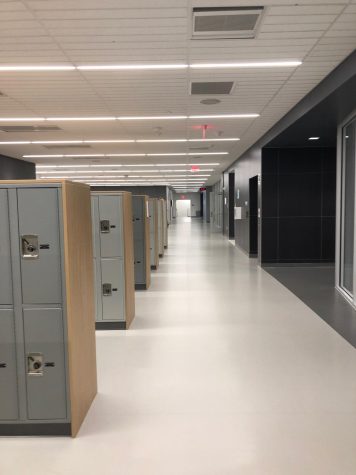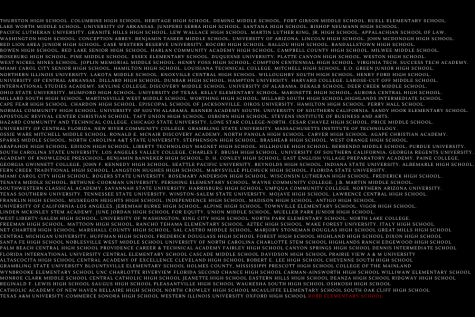Students speak out against poster policy
A new television monitor displays school news.
Walking through the halls of Sartell High School, one may notice the lack of decoration on the walls. The usual signs advertising clubs, sporting events, theatrical performances, etc. are missing. A new rule enacted in Sartell High School has banned the displaying of any posters, school-sponsored or otherwise, on the property.
This new rule came after a recent controversy over LGBTQ+ rainbow pride stickers. The school board made the decision to remove the stickers and with them, all posters. Television monitors around the school now display a slideshow of school opportunities. In order for their information to be displayed on these screens, a group must submit their signage to administration for approval. A group of students, upset with the new policy, turned to Change.org to create a petition to bring back the posters. As of writing, the petition has 624 signatures.
Sartell Senior, Kate Ellis, created the petition to show administrators that students care about the lack of posters.
“I definitely think the 623 signatures we currently have helped by showing that it’s not just a couple of people issue, it’s a 623 person issue and that it affects all of us, not just a certain group of us. I feel like it’s also spread the message to people who don’t know, how students are feeling,” Ellis says.
Other students involved in the petition, Stephanie Bluhm and Summbla Anjum, share similar sentiments. The three students, Bluhm, Anjum, and Ellis all belong to Sartell’s Student Council and believe this policy is harmful to their group. They had this to say on the topic of the petition:
“We have already started to see some changes,” says Anjum, “but most importantly it [the petition] opened the door to conversation. By bringing this issue to the attention of the school and district administration, it has allowed us to try and work with them for an effective solution.”
Bluhm adds, “It was a really good way to get our community involved and to tell our school board and our superintendent that we are feeling this way.”
When asked for her opinion on the new policy, Anjum had this to say, “The sudden implementation of this policy has been the biggest blow to Student Council and other school activities. We have been using posters for years, and that is what people are used to preparing for and seeing around the school. When we were told that we couldn’t do that anymore with little to no warning or explanation a lot of us had no idea how to work around it.”
A concern raised by students when the posters were initially removed was over the removal of posters detailing a mental health crisis hotline number. This made some students question the policy’s impact on mental health.
Ellis responds, “We have had our Crisis Hotline posters taken down, which had the potential of doing important things. That’s the big one, but also just seeing things that are going on in your school makes you feel more connected and can do things to help [mental health].”
“Our school itself has never really seemed to be a welcoming environment in the first place. I remember when we transitioned into this building and how different it was from our old high school. The old building was like a living memorial, it always had reminders from previous classes and points of pride that were displayed. Contrastingly, this building feels like a hospital: sterile, clean and unfeeling. When we talk about social and emotional learning I think a big part of that is the environment that we learn in. If students don’t feel like they are a part of a community or that they are accepted, that is definitely going to negatively impact their mental health,” says Anjum.

Another concern students have with the new policy is the effectiveness of using television screens to advertise school events.
“If everyone is trying to use the TV, then there are so many messages trying to be conveyed in so little time that it’s not effectively communicating the information in its entirety,” says Ellis.
“You can’t type a paragraph and leave it up for three seconds and expect people to understand what it says,” adds Bluhm.
“Sometimes doing things the old-school way is best,” responds Anjum. “No one has the time to wait in the halls and watch all the announcements scroll by.”
While it seems this new policy is here to stay, at least for the time being, the three students made it clear they are working with school administration to find a happy medium that will satisfy both sides. Already, changes have been made to the policy to allow Student Council and Yearbook to hang some posters when needed.
“I am very happy with the way our administration has seen our disappointment and then has started to deal with it. They seem to legitimately be trying their best to help us,” Ellis says.
Anjum adds, “There are some changes that are being made in hopes to improve this policy. However, like many other changes, I probably won’t be around to see it. Although I have spent three years in this building, when someone asks me about my high school, I will remember the murals and displays throughout the halls of the old building.”

Hi, my name is Eva Hesse. I'm a senior at Sartell High School and a future Marquette student starting in fall 2022. I plan to pursue a double major in...














